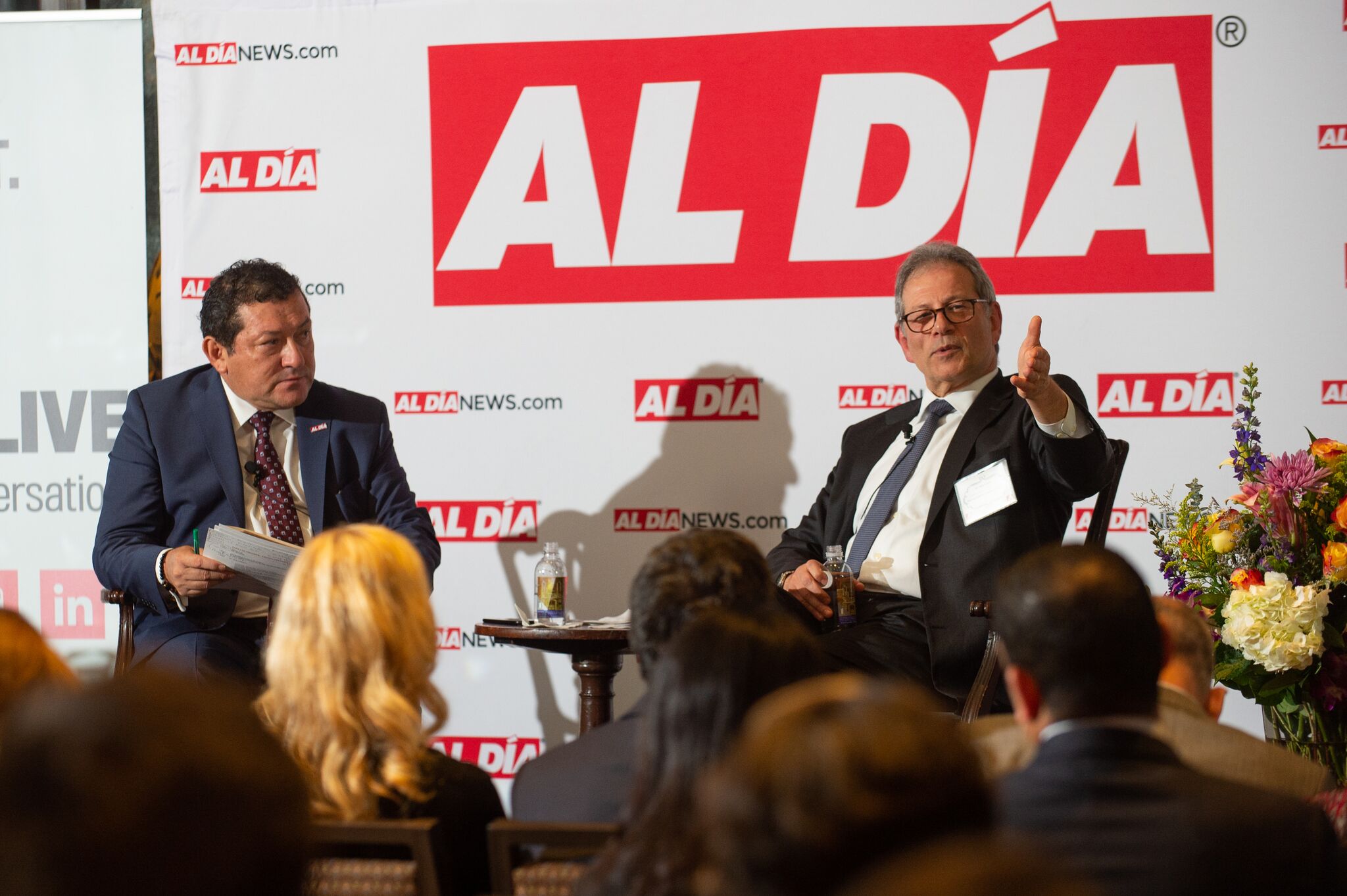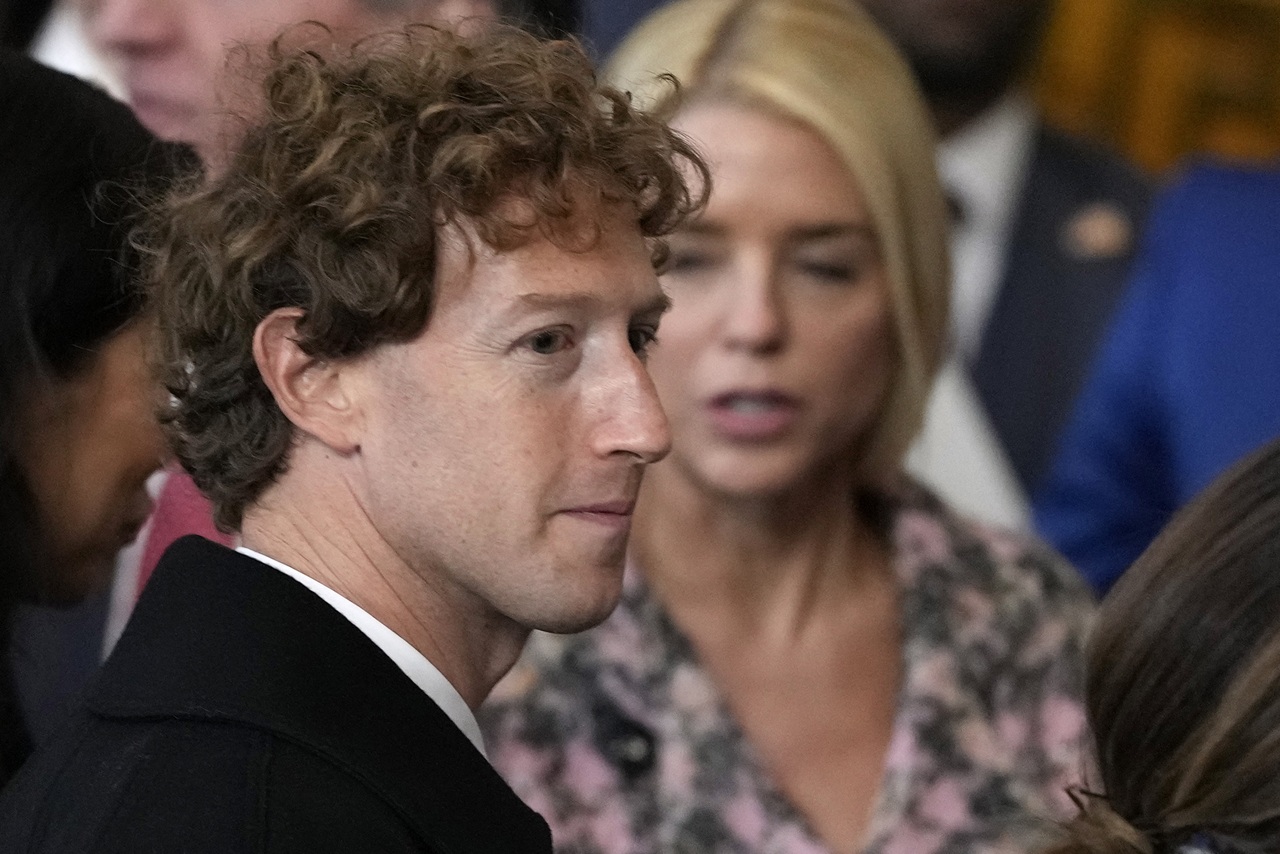
The state of our Latino doctors — now and in the future
In a fireside chat, AL DÍA Publisher and CEO, Hernán Guaracao, and Dr. Jack Ludmir, Senior Vice President of Physician Engagement and Integration at Jefferson…
On Jan. 24, 63 attendees gathered at the Union League in Center City, Philadelphia to recognize some of the top Latino doctors in Philadelphia.
The mood at the AL DÍA Doctors Forum and Reception was celebratory, as Drs. Alberto Esquenazi, Matilde Irigoyen, Max Mercado, and Jesse Roman were honored for their significant contributions to the medical field in Philadelphia, and 27 other nominees for the awards were also recognized for their substantial work and accomplishments as physicians in the city.
But discussions throughout the evening, from speakers, honorees, and attendees together, also focused on some of the hard truths about the lack of Latinos in the profession that is getting worse, even as the overall presence of Latinos in the U.S. grows.
In a fireside chat conversation with Hernán Guaracao, CEO and publisher of AL DÍA News, Dr. Jack Ludmir, a leader in medicine in Philadelphia through his current role as vice president of physician engagement and integration and associate provost for community and global initiatives at Jefferson Health, noted that, though the U.S. Latino population has been increasing, and is projected to number over 50 million by 2050, the representation of Latinos in medicine is decreasing.
Ludmir, who is the co-founder of Puentes de Salud and Latina Community Health Services, a nonprofit organization caring for the migrant population in South Philadelphia, noted in his opening remarks that “we have a lot of work” to do to increase the number of Latino physicians working in Philadelphia, citing the fact that though 15 percent of the city’s population is Latino, less than three percent of doctors in Philadelphia are Latino.
“The issue is the pipeline,” Ludmir said.
The physician ventured that “instead of sitting in our bastions and beautiful places like this one, and waiting for people to come to us,” medical professionals need to increase their outreach to young children in North Philadelphia and other areas to create more mentoring relationships. Part of the problem, he noted, is the “cycle of poverty,” which makes it more difficult for Latino students to prepare for the MCAT test required for admission into medical school.
“It’s so difficult to compete when you can’t afford courses and techniques to take these exams — it’s very different when you’re poor and you don’t have a thing.”
By reaching students when they are still in elementary or high school, Ludmir said that physicians can begin to engage more Latino youth in the medical profession.
“I honestly think that we have the responsibility to make a difference. I’m sick and tired of hearing, ‘I’m just a physician, I’m doing the right thing, but I cannot solve all the social problems of our society and it’s not my problem if they cannot come to my office,’” he said.
“I don’t agree with that. I think that we need to be an example that we can be a part of the solution,” he said, noting that though he understands the many demands on physicians’ time, the need remains to “challenge us that through our greatness, we can make a difference.”
Ludmir explained that he took a unique path to the top level of healthcare leaders and physicians in the region.
As “a proud Philadelphian by birth that happens to have a Hispanic accent,” Ludmir has deep ties to Peru, where his family moved when he was just three years old. He spent his formative years in the South American country, leaving when he was 18 to attend college and medical school in the United States.
RELATED CONTENT
Ludmir noted that he has always known what it means to be an outsider; even in Peru, he experienced discrimination due to his Jewish identity.
When a classmate in Peru challenged his right to be in the room discussing philosophy because of the fact that he was Jewish, Ludmir said that he stood up and defended himself in front of the 250 students gathered in the lecture hall, who applauded him.
He said that it’s an example, for him, of how he learned how to conceive of diversity as “all of who you are,” and what it means to stand up for oneself or one’s beliefs. He said it also gave him a different perspective on what it meant to be welcomed in a country.
“My family could have disappeared during the Holocaust, and they were fortunate to have a welcoming country, like in Peru, or….other countries that opened their doors,” he noted.
Ludmir said that his father, who was an OBGYN who studied at the University of Pennsylvania and completed his residency at Jefferson, was one of the people who influenced him to pursue a path in medicine. His deep connection to Philadelphia has led Ludmir to devote much of his professional career to serving the city.
In addition to his current role at Jefferson Health Care, Ludmir has spearheaded a cross-sector, citywide initiative called the Philadelphia Collaborative for Health Equity in order to address the challenges the city’s deep poverty poses to adequate access to health care and resources for all.
The approach is “from the ground up,” said Ludmir, as the organizers “go to different communities and we listen to what communities want.”
“We want to be the facilitators, the catalysts to put different stakeholders together to change things,” he said.
Though there are many challenges to achieving health equity in a city with nearly 26 percent of the population living in poverty, Ludmir is hopeful about the future of a more equitable and inclusive Philadelphia.
“I think that I have faith that this city is going to continue to be unique, welcoming, defined by their different ethnicities because finally everyone is going to understand that they have to invest in their own communities, and I hope, being a health care provider that this issue of health is going to be elevated to a different level, not to the level that we are at right now,” Ludmir said.











LEAVE A COMMENT: